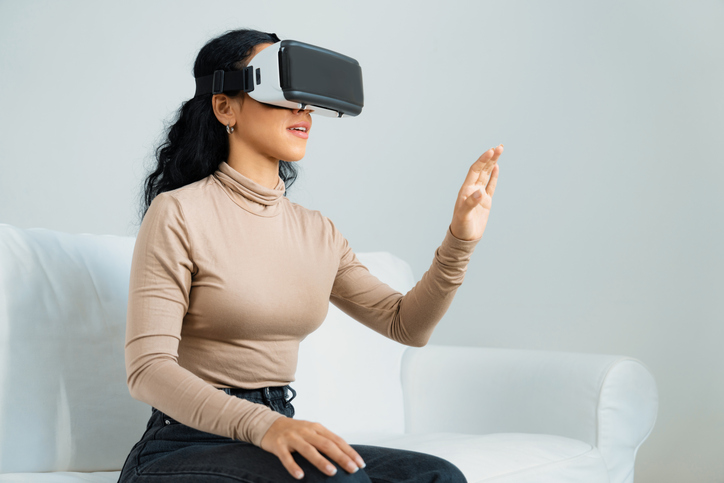2024-08-07
The use of Immersive Virtual Reality would be effective against Mild Cognitive Disorders
Neurology
The increase in cases of mild cognitive impairment (MCI) highlights the urgent need to find effective methods of slowing its progression. Given the limited effectiveness of current pharmacological options in preventing or treating the early stages of MCI, non-pharmacological alternatives are of particular importance.
This study aimed to evaluate the efficacy of a cognitive-motor intervention based on immersive virtual reality (VR) that simulates an activity of daily living (ADL) on cognitive function and its impact on depression as well as the ability to perform such activities in patients with MCI.
Thirty-four older adults with MCI were randomised into two groups: an experimental group and a control group. Both groups received motor training through aerobic, balance and group resistance activities. The experimental group then received cognitive training based on VR, while the control group received traditional cognitive training. Cognitive function, depression and ability to perform ADLs were assessed before and after a six-week intervention (a total of twelve 40-minute sessions).
Comparisons between the groups revealed no significant difference in either cognitive function or geriatric depression. The within-group effect on cognitive function and geriatric depression was significant in both groups. There was no statistically significant improvement in ADL performance in either group. The completion rate in the experimental group was higher than in the control group. Similarly, participants in the experimental group reached a higher level of difficulty and took less time to complete the tasks given at each level. Motor training followed by a cognitive task based on immersive VR has been shown to be a beneficial non-pharmacological strategy for improving cognitive function and reducing depression in patients with MCI.
Thirty-four older adults with MCI were randomised into two groups: an experimental group and a control group. Both groups received motor training through aerobic, balance and group resistance activities. The experimental group then received cognitive training based on VR, while the control group received traditional cognitive training. Cognitive function, depression and ability to perform ADLs were assessed before and after a six-week intervention (a total of twelve 40-minute sessions).
Comparisons between the groups revealed no significant difference in either cognitive function or geriatric depression. The within-group effect on cognitive function and geriatric depression was significant in both groups. There was no statistically significant improvement in ADL performance in either group. The completion rate in the experimental group was higher than in the control group. Similarly, participants in the experimental group reached a higher level of difficulty and took less time to complete the tasks given at each level. Motor training followed by a cognitive task based on immersive VR has been shown to be a beneficial non-pharmacological strategy for improving cognitive function and reducing depression in patients with MCI.
The study showed that both types of cognitive training (traditional and VR-based) combined with motor training can lead to significant improvements in cognitive function and depression.
In conclusion, this study demonstrates the potential effectiveness of immersive cognitive-motor intervention for patients with MCI. Further research is needed to refine these interventions and explore their long-term impact, as well as to identify the specific components that are most beneficial. The adoption of such strategies could play a crucial role in maintaining the quality of life of older people with this disorder, by delaying progression to more severe forms of cognitive impairment.

Last press reviews
Dark chocolate: guilty pleasure or a renal ally?

By Ana Espino | Published on December 16, 2025 | 3 min read<br>...
A post-exercise infrared sauna session: a booster for neuromuscular recovery or just comfort?

By Lila Rouland | Published on December 15, 2025 | 3 min read<br>
Cinnamon: more than just a spice?

By Ana Espino | Published on December 12, 2025 | 3 min read<br>...